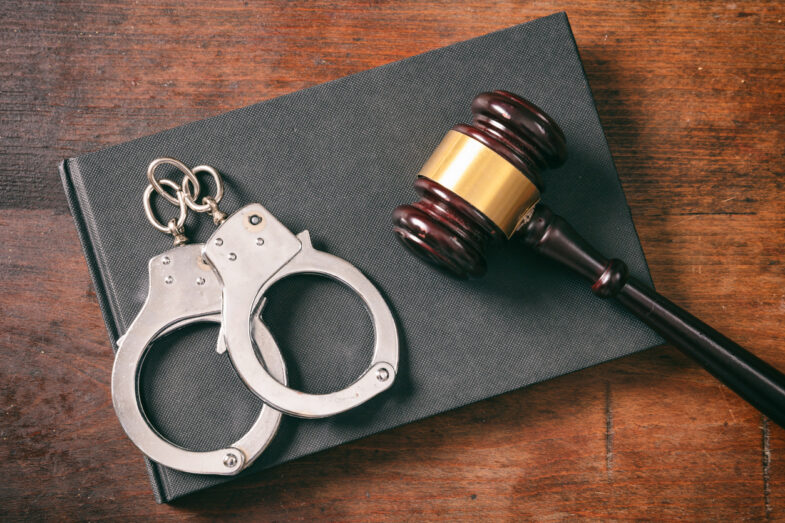Cofer Luster Criminal Defense Lawyers | September 11, 2024 | Criminal Defense

In Texas, individuals have two primary methods to eliminate their criminal records: expunction (or expungement) and non-disclosure. Expunction entails completely eradicating a person’s criminal history from all public databases, including records maintained by law enforcement and prosecution offices.
On the other hand, non-disclosure restricts public access to information regarding specific offenses, effectively concealing them from most individuals or organizations that might conduct background checks while still allowing certain governmental entities limited access.
It is essential for defendants to understand expungements and how they can impact their future.
What Charges Can Be Expunged in Texas?
In Texas, not all criminal charges are eligible for expungement, and understanding the specific criteria is important. Generally, felonies that can be expunged include those where the individual was acquitted at trial; the charges were dismissed before going to trial, a person receives a pardon from the governor, and cases where the state never formally charged the individual after arrest.
Crimes Not Eligible for Expungement in Texas
Certain criminal convictions cannot be expunged in Texas. The following offenses are specifically excluded from eligibility for expungement:
- Driving while intoxicated (DWI)
- Murder
- Indecency with a child
- Sexual assault
- Kidnapping
- Aggravated robbery
- Criminal solicitation
- Assaults with an affirmative finding of family violence
- Drug trafficking
- Aggravated assault
Understanding these exclusions is vital for individuals seeking to evaluate their options regarding expungement in Texas.
How to File For Expungement in Texas
Filing for expungement can provide individuals with a fresh start. It’s important to note that if you are still on probation, you will need to wait until probation is completed before you can proceed with filing for expungement. Here’s what you need to do once you’re eligible to file:
Preparing the Expungement Petition
To initiate the process, you will need to prepare an expunction petition. This involves gathering the necessary documents and ensuring that all details are accurate. Alongside the petition, there is typically a filing fee that must be submitted to the court.
Attending the Hearing
Once your petition is filed, you will be scheduled for a hearing where a judge will review your case. During this hearing, both you (and your lawyer) and possibly the prosecuting attorney will have the opportunity to present your arguments regarding the expungement. The judge will ultimately decide whether to grant your request.
Following Up on Your Application
If granted, the next step is to verify that your criminal record has been expunged. It is advisable to check with the Department of Safety approximately six months after the hearing to ensure that the record has been removed.
The Benefits of Expungement
Expungement offers numerous benefits that can significantly improve an individual’s quality of life. By removing or sealing criminal records, individuals can benefit in the following ways:
Improved Employment Opportunities
One of the most significant benefits of expungement is the enhancement of employment prospects. Many employers conduct background checks as part of their hiring process; having a clean record can increase an individual’s chances of securing a job and accessing higher-paying positions.
Enhanced Access to Housing
Expungement can also positively affect an individual’s ability to secure housing. Many landlords review criminal history before approving rental applications. By clearing their record, individuals can avoid potential discrimination and find suitable housing more easily.
Greater Peace of Mind
Removing criminal charges from one’s record can relieve the emotional burden associated with past mistakes. This peace of mind allows individuals to move forward without the lingering fear of judgment or repercussions related to their past. It can also improve relationships with friends and family by removing the stigma associated with a criminal record.
Eligibility for Professional Licenses
In some professions, individuals must undergo a background check before obtaining a professional license. Expungement may make it possible for individuals to meet licensing requirements and pursue their desired career path. This benefit is especially critical for those seeking jobs in fields such as healthcare, law enforcement, or education.
Expungement offers many benefits that can significantly impact an individual’s life in various ways.
Contact A Texas Criminal Defense Attorney
Navigating the expungement process can be complex and varies based on individual circumstances. It is crucial to contact a qualified lawyer as soon as possible to ensure that you receive appropriate guidance. Contact Cofer Luster Criminal Defense Lawyers today to schedule a free consultation with a criminal defense lawyer.
Contact The Fort Worth Criminal Defense Law firm of Cofer Luster Criminal Defense Lawyers for Legal Help Today
For more information, please contact the Criminal Defense law firm of Cofer Luster Criminal Defense Lawyers for a consultation. Give us a call at (682) 777-3336 or visit our convenient location:
We serve Tarrant County and Fort Worth, TX surrounding areas.
Cofer Luster Criminal Defense Lawyers
604 E 4th St Ste 101, Fort Worth, TX 76102
